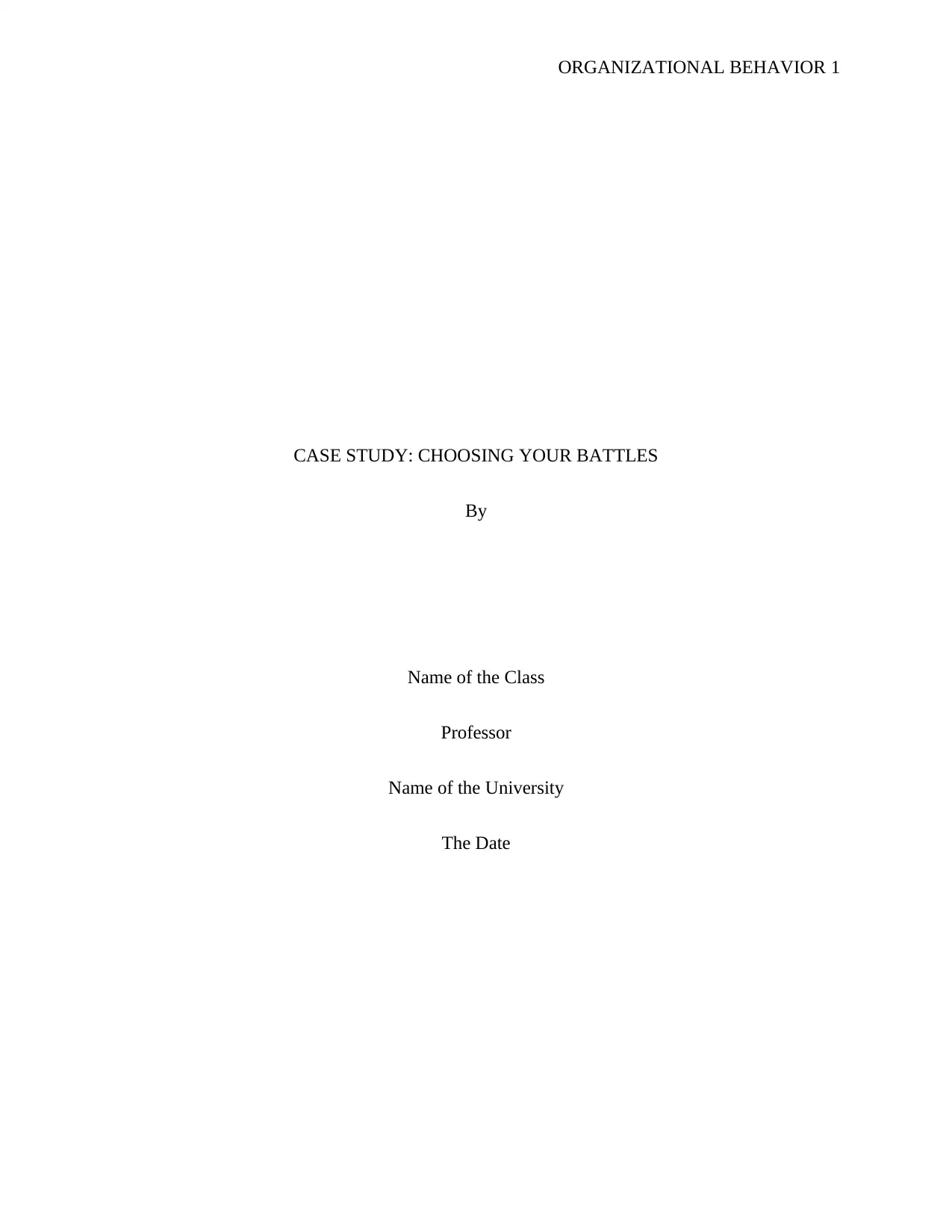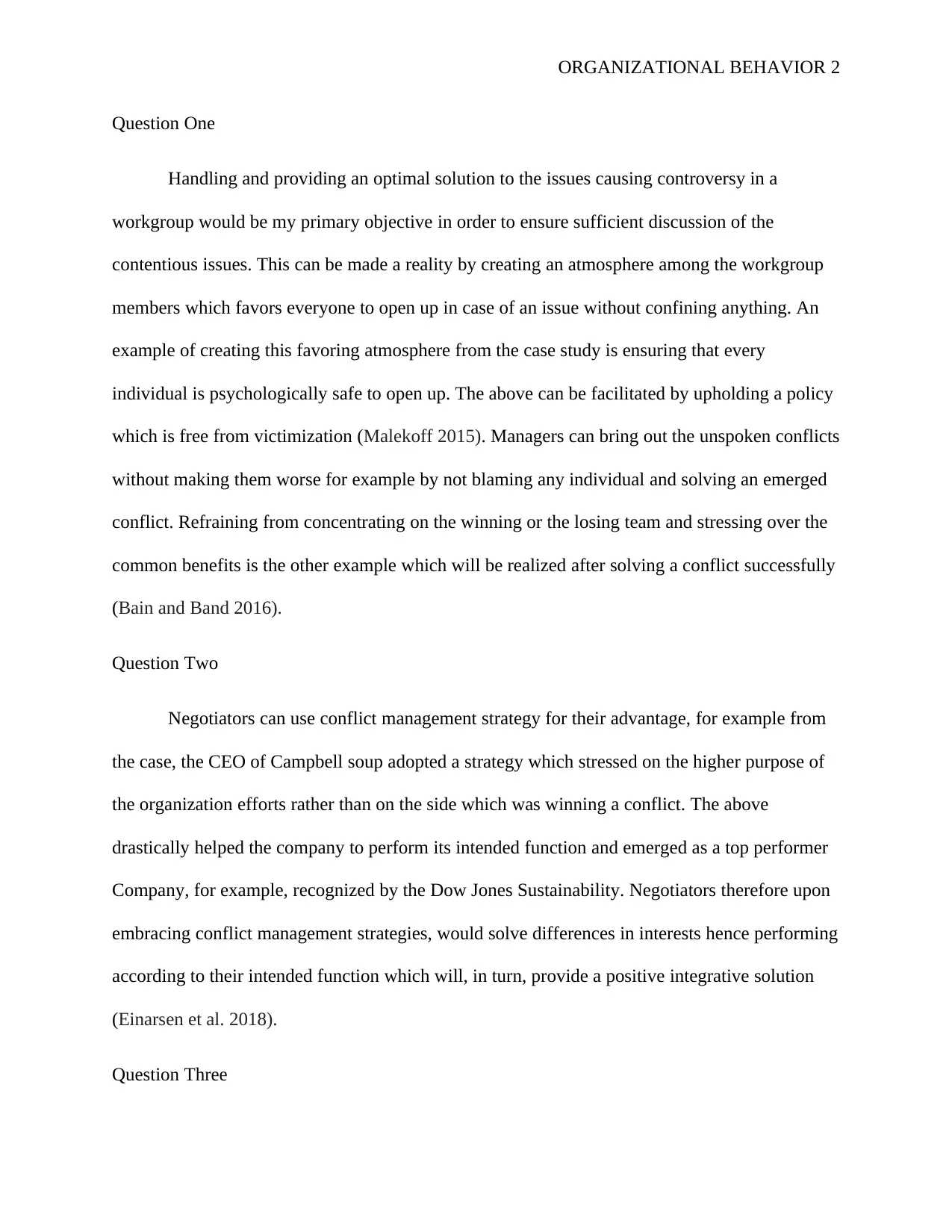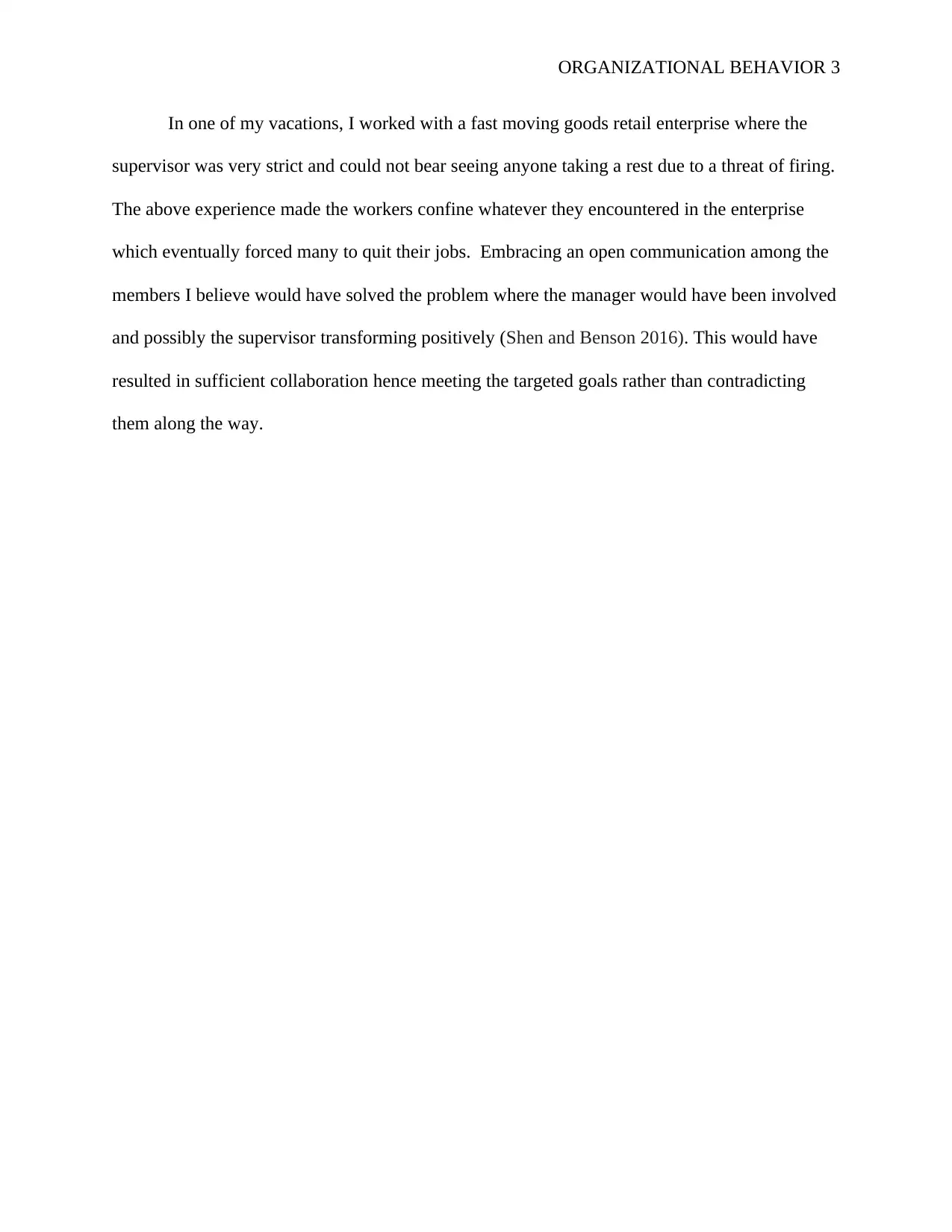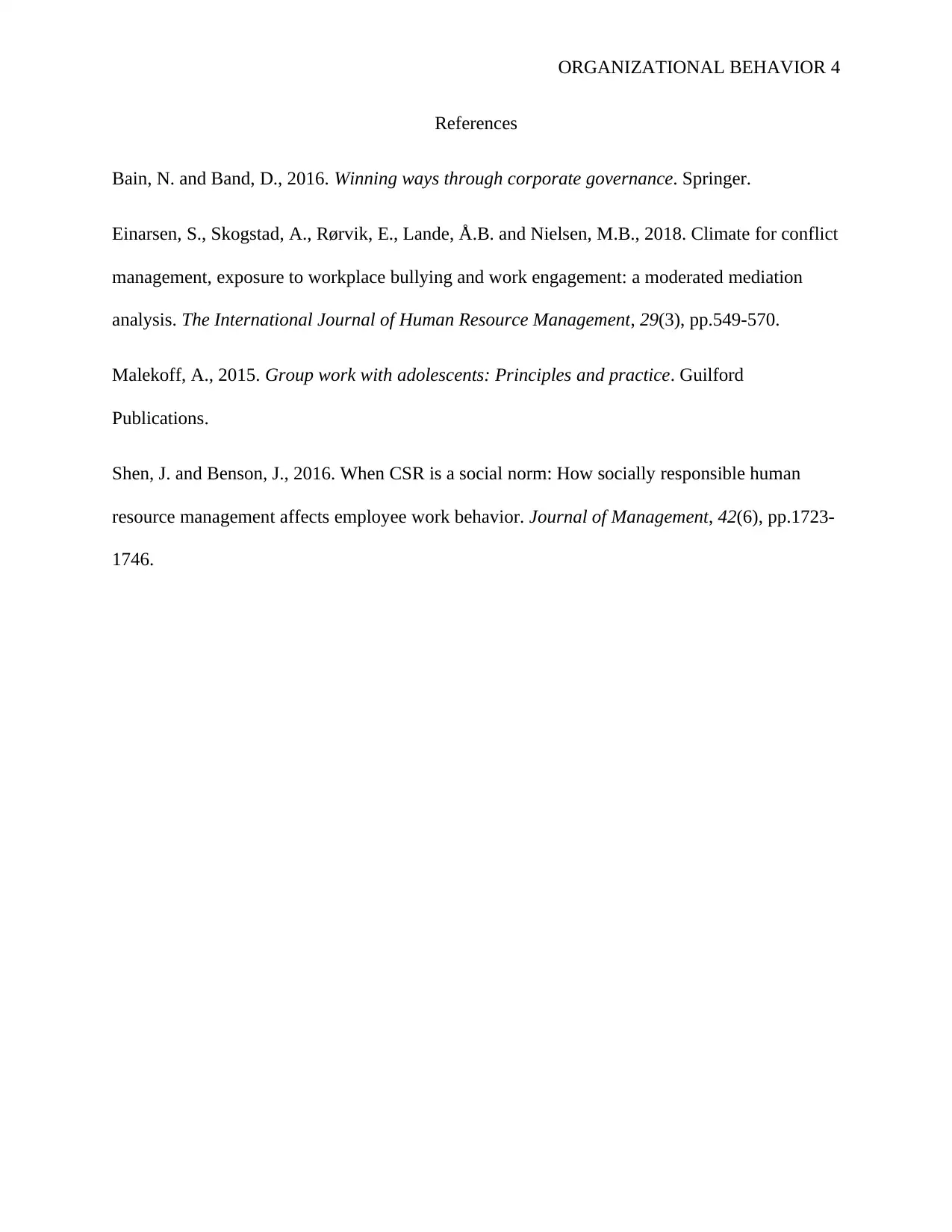Organizational Behavior Case Study: Choosing Your Battles Analysis
VerifiedAdded on 2023/06/04
|4
|555
|235
Case Study
AI Summary
This case study analyzes the 'Choosing Your Battles' case, focusing on conflict management within an organizational behavior context. The assignment addresses how to handle contentious issues in a workgroup by fostering open communication and psychological safety, as well as how conflict management strategies can benefit negotiators, as seen through the example of Campbell Soup's CEO. The solution provides examples of applying conflict resolution strategies and references relevant academic literature. Furthermore, the case study includes a personal reflection on a past experience, highlighting the importance of open communication and its impact on employee morale and productivity. The assignment emphasizes the significance of effective leadership in managing conflicts and creating a positive work environment.
1 out of 4





![[object Object]](/_next/static/media/star-bottom.7253800d.svg)